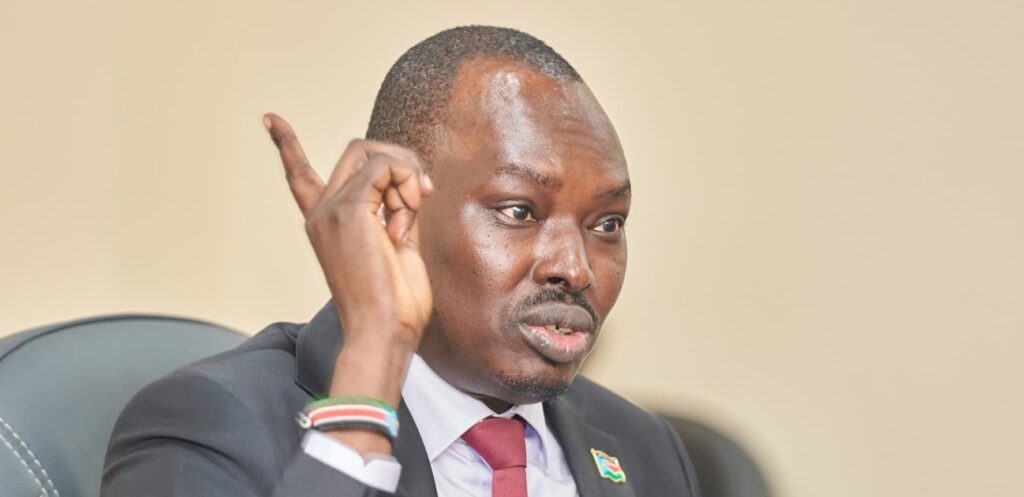South Sudan’s government is facing a legal challenge at the East African Court of Justice (EACJ) over a $1.05 billion debt, in a case that raises fresh concerns about transparency and financial governance in the country.
South Sudan is grappling with mounting debt and an increasingly fragile peace deal. In March, the transitional government placed the petroleum minister and other senior officials under detention.
According to court filings seen by Radio Tamazuj, the case was filed on April 8, 2025, by South Sudan Supreme Airlines Co. Ltd, which accuses the National Ministry of Finance and Planning of breaching a binding settlement agreement signed on February 13, 2025.
The national airline, owned by business tycoon Ayii Duang Ayii, is represented by Senior Advocate Wani Santino Jada of Pan African Law Chambers LLP, a Juba-based law firm.
The agreement, signed by representatives of the Ministry of Finance and Planning, acknowledges a total debt of $1,053,936,749.853 owed to South Sudan Supreme Airlines for services and obligations delivered, with an additional 10% legal fee payable to the law firm.
Under the settlement, the South Sudanese government was required to begin repayment in 24 monthly installments starting February 28, 2025, but no payments have been made to date. The lack of action prompted the applicant to seek redress at the regional court based in Arusha, Tanzania.
“The respondent has failed to honour any payments under the agreement, despite repeated demands,” the filing states.
The South Sudanese Ministry of Justice was served with a court letter on April 9, requiring a response within 45 days. However, the ministry, represented by the Attorney General, failed to file a response.
The case, registered as Reference No. 16 of 2025, names the Attorney General of South Sudan as the respondent, acting on behalf of the government.
The plaintiffs allege that the government’s conduct violates key provisions of the Treaty for the Establishment of the East African Community, including Articles 5, 6(d), 7(2), and 8(1)(c), which require member states to uphold the rule of law, accountability, and good governance.
A source told Radio Tamazuj that the legal action was necessary to preserve the airline’s rights under the binding settlement, which acknowledges the debt owed by the Ministry of Finance for services delivered to the army. The source did not provide further details on the nature of the services.
The duration during which the services were provided to the army remains unclear.
The Ministry of Finance and Planning did not respond to requests for comment from Radio Tamazuj.
When oil-rich South Sudan gained independence in 2011, it entered the international community with a clean financial slate and no government debt.
However, in the years that followed—many marked by a devastating civil war—the government increasingly relied on pre-financing oil deliveries in exchange for credit from commercial banks, multilateral institutions, and commodity traders.
In recent months, legal claims and adverse rulings involving institutions such as Qatar National Bank (QNB), the African Export-Import Bank (Afreximbank), BB Energy DMCC, and commodity trader Vitol have mounted against South Sudan, which has “largely stopped repaying” loans since 2018, according to a UN report released last month.
Repayment through oil deliveries has become even more difficult following a pipeline explosion early last year that significantly reduced oil export capacity.




